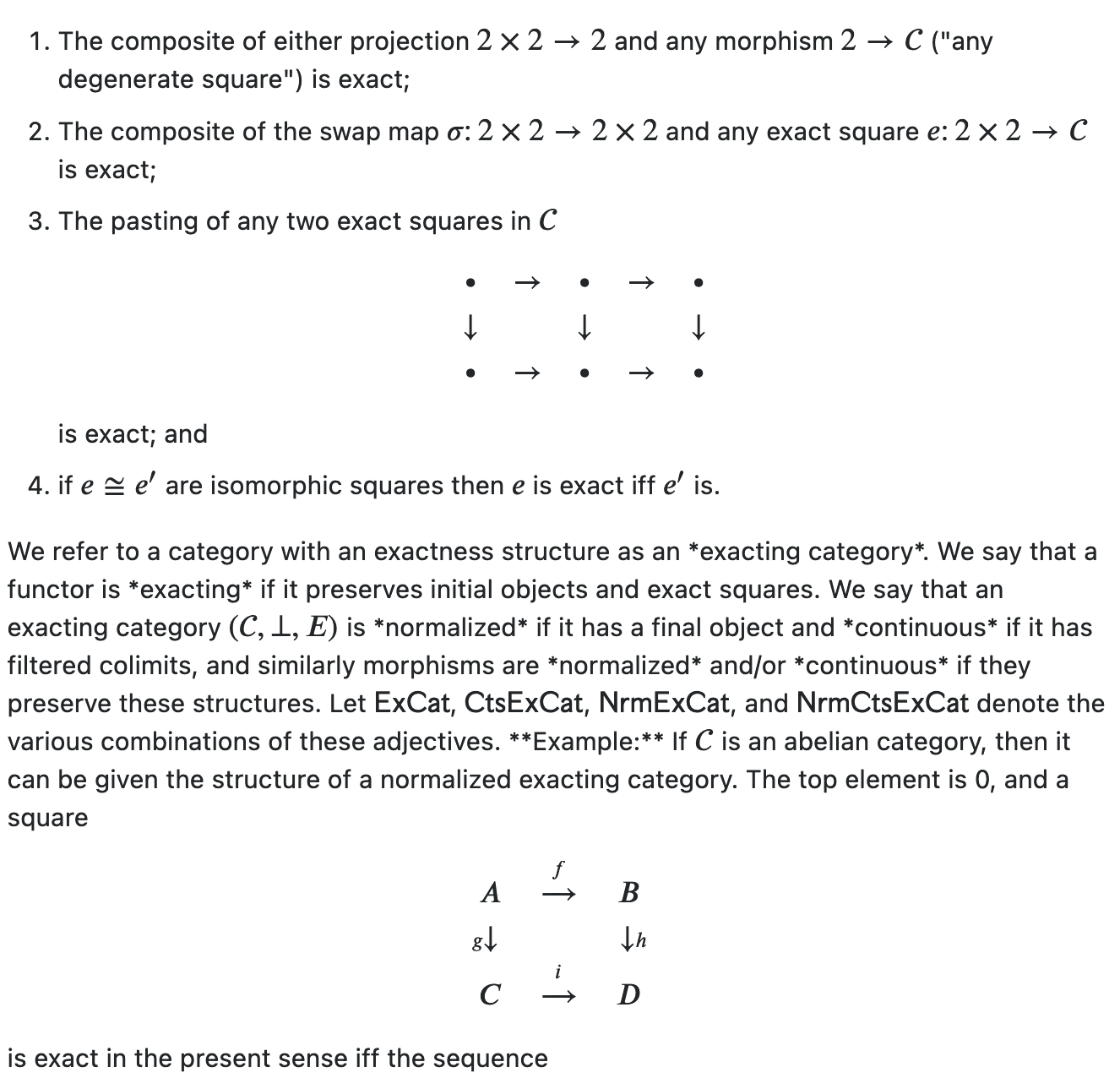The post "HTML comments break formatting from that point" on Meta Stack Exchange mentions that problems can be caused by an incorrectly entered HTML comment
<!-- An HTML comment --!>
instead of the correct version
<!-- An HTML comment -->
As far as I can tell, after revision 12 when I changed exactly this, Markdown seems to be rendered correctly.
When I try searching in the MarkDown code for other similar mistakes here on MO, the SEDE query returns only this post. (And after the next update of the database, it should no longer be in the result.) Searching in the body returns nothing.
Below you can see a few "experiments" testing how this behaves when posted here.
This is the text from the linked post, but it is not commented - notice that the italics work here:
- for any span $C\xleftarrow{g}A\xrightarrow{f}B$, there is—up to isomorphism—at most one exact square containing it, and similarly for any cospan $C\xrightarrow{i}D\xleftarrow{h}B$. ---- This rules out the van Kampen example, so I erased it.
We refer to a category with an exactness structure as an exacting category. We say that a functor is exacting if it preserves initial objects and exact squares.
And now the same text as a comment - with correct version of HTML comment:
We refer to a category with an exactness structure as an exacting category. We say that a functor is exacting if it preserves initial objects and exact squares.
And this happens, if I use HTML commenting in the same way as in revision 11 of the post.
We refer to a category with an exactness structure as an *exacting category*. We say that a functor is *exacting* if it preserves initial objects and exact squares.

